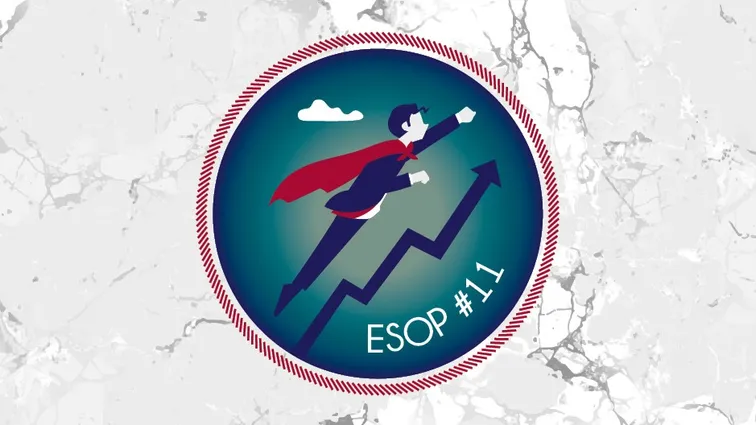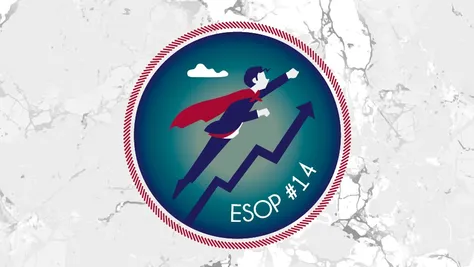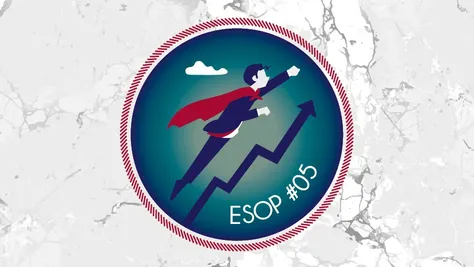In the previous episodes of ESOP’s leadership, we focused on the motivation of managers from various perspectives of the stakeholders involved – we described what should motivate the founder to implement the ESOP, and also how the ESOP can motivate the individual managers involved in it. We are going to ponder on motivation some more, as we consider it a key aspect of ESOPs.
Let us build on our previous post on manager motivation and focus on the related key aspects that can be reflected in the company in relation to individual motivation of managers. Sometimes subtly, sometimes very conspicuously, these can improve the performance of all employees and the company as a whole, often in a fundamental way.
1. Cross-departmental collaboration and the end of free-riding
A “partly employee-owned” company operates in a very different way in terms of control and supervision. In a company without an implemented ESOP, there are managers or employees in leadership positions who are responsible for overseeing the work and efforts of employees in their assigned department. Thus, by default, these managers will be motivated in such a setting to exercise control and supervision of their particular department and, where appropriate, to seek to increase the prosperity and improve the functioning of their particular department.
In the event that an employee underperforms or has substandard results, the manager in question is motivated to exercise control only by his or her duty imposed by the employer or the company’s shareholders (in the case of top management). Quite logically, this duty will be limited to the area or department for which the manager is responsible – managers will therefore be focused on controlling their department and subordinates, while the performance of other departments will not be relevant to them. Similarly, the manager has no good reason for trying to ensure the profitability of other departments, whether through the exercise of control, or positively through providing assistance, such as securing a contract. For a manager in such a setup, it will (usually) not matter how a department for which he or she is not responsible is doing, since its success or failure will substantially have no impact on his or her remuneration.
However, if the manager in question participates in some form of ESOP, then poorer performance or results of a particular employee have a direct impact on the results and rewards of the particular manager, as a lower bonus, dividend or other form of remuneration will logically be paid out because the company will generate less profit due to the underperformance of the said employee.
At the same time, as indicated above, the manager’s interest in the case of ESOP is, due to the nature of the plan, not limited to the employees of the department for which the manager is responsible, nor is it limited to controlling and supervising other employees. By gaining a stake in the entire company, the manager also has an eminent interest in seeing that every other department prospers as well as possible, and his or her interest is therefore not limited to the prosperity of his or her department. This way, managers help each other either by means of control, recommendations, or by actively securing a contract for a department other than their own. Can you imagine a manager in a regular company trying to procure contracts in their spare time for a department they do not work for?
Through the implementation of an ESOP, a fundamental change in the management and control of the company can be achieved, where each participant in the ESOP is extremely motivated to control and further motivate all employees and thus help the majority owner in this otherwise complex and time-consuming activity.
2. Employees’ feeling of togetherness
However, the positive effect is not necessarily only manifested through managers paying more attention to other departments, their productivity, and the performance of other employees. Other positive impacts may also come more from “within”.
In a company with a properly implemented ESOP, the feeling of togetherness increases significantly on the part of employees. This fact is very often mentioned by our clients for whom we have implemented an ESOP. Indeed, this is also evident from various surveys conducted around the world (most often in the USA, where ESOPs are probably the most widespread).
Generally speaking, the employees of such a company develop a sense of a common “we” at the expense of the individual “me”, as these employees are all participants in a common project. Something like this has many positive effects. Closer relationships and bonds often develop between individual employees who help each other more, pull together, and have no problem staying longer to help a colleague complete a work task.
As part of their feeling of togetherness with the company, employees more easily and quickly adopt the company’s values and perceive the company as their own community. Well, here we have can but refer to our previous post where, I believe, we have in great detail discussed the much needed inner motivation of managers.
The feeling of togetherness goes hand in hand with the personal (and indirectly also economic) stability of the company, as employees and managers are less likely to leave such a company and work there for the long term. At this point, it is therefore necessary to reiterate what we have already stated in our previous posts – that ESOPs can help to keep talent in the company and prevent turnover, which is particularly problematic in times of low unemployment.
So, does anyone still doubt the positive effects of ESOPs?










